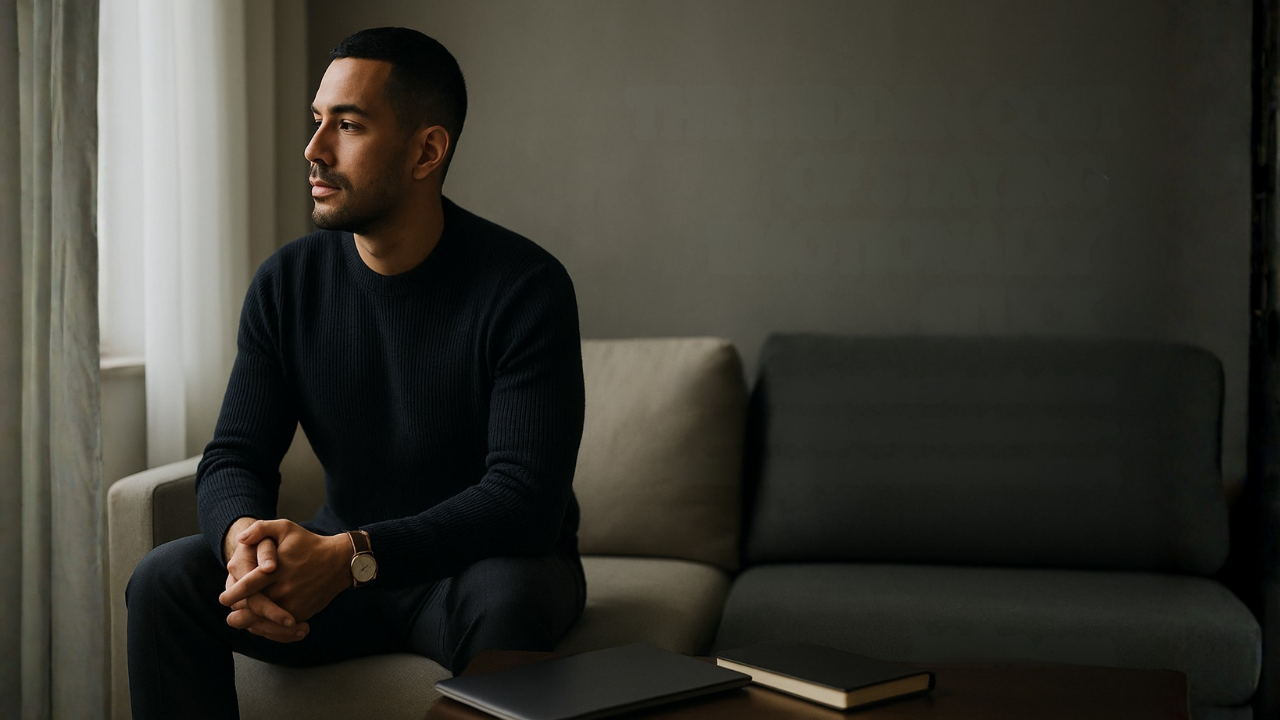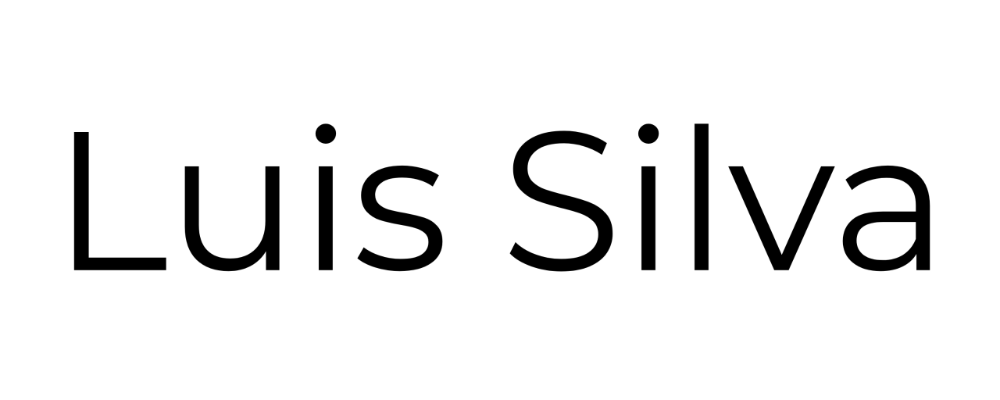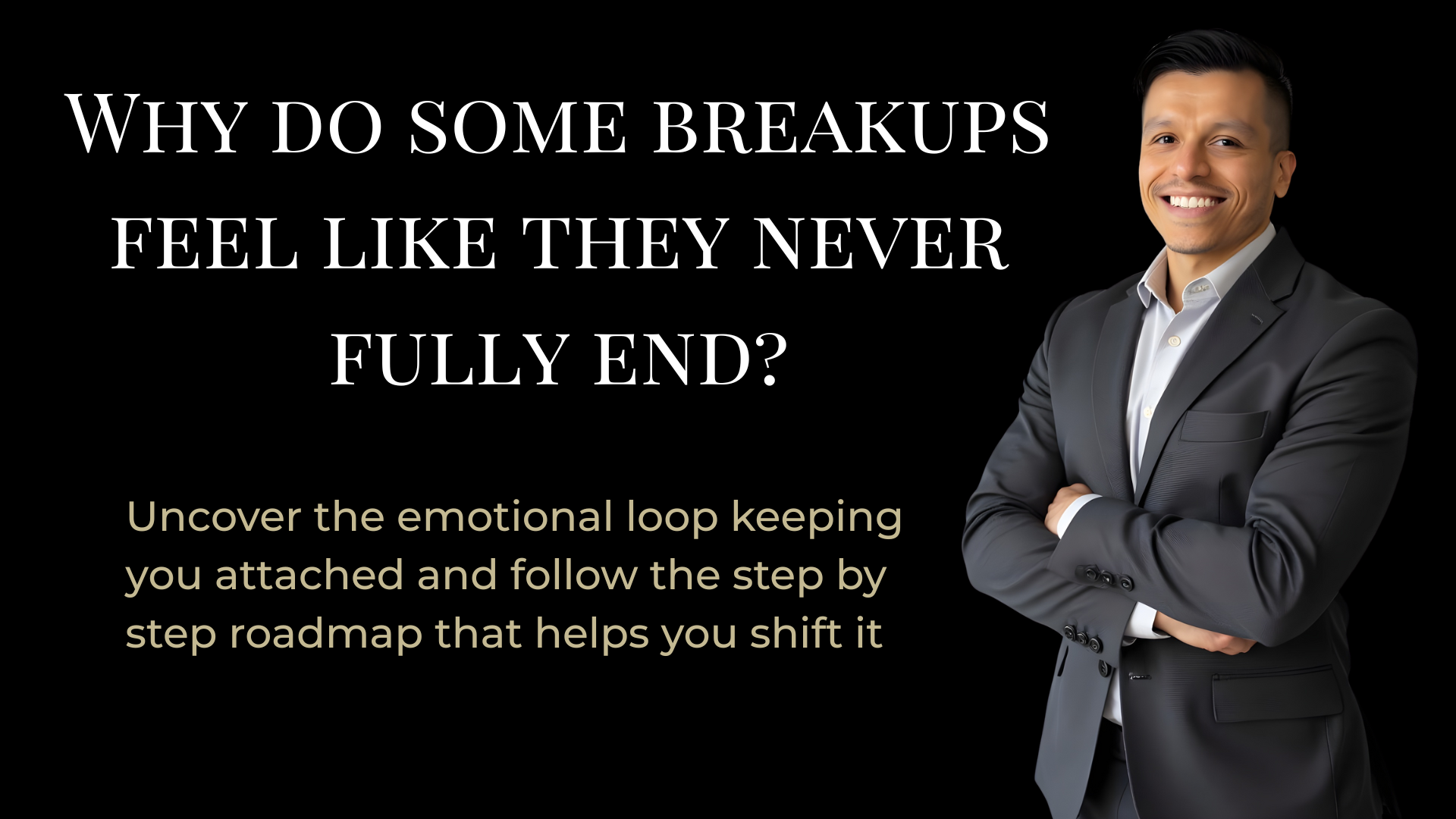
The Hidden Cost of Staying Emotionally Stuck (It's More Than You Think)
You know that feeling when you're scrolling through social media and see someone you used to date living their best life, and suddenly your chest tightens? That split second where your productivity for the day just... vanishes? That's just the tip of the iceberg when it comes to what staying emotionally stuck really costs you.
Most people think heartbreak is just about the sadness, the late-night thoughts, maybe some awkward encounters. But here's what nobody talks about – the price you pay extends far beyond your dating life. It seeps into your career, your friendships, your bank account, and even your physical energy in ways you probably haven't connected yet.
Think about the last time you felt truly stuck after a relationship ended. Maybe you told yourself you were "fine" and jumped back into work, social events, even dating. But somewhere in the back of your mind, there was this constant background noise – like a phone app running in the background, slowly draining your battery without you realizing it.
The Professional Performance Leak You're Ignoring
Picture this scenario: you're in an important meeting, presenting a project you've worked on for weeks. Everything should be going smoothly, but your mind keeps drifting. Not to anything obvious – just this general sense of heaviness that makes it harder to think clearly, harder to feel confident, harder to connect with your colleagues the way you used to.
This isn't about being dramatic or letting emotions "get in the way" of work. It's about understanding how our emotional state directly impacts our cognitive resources. When part of your mental energy is constantly tied up in unresolved feelings, there's simply less available for everything else.
You might notice you're more indecisive than usual, second-guessing ideas that would have felt obvious before. Maybe you're avoiding networking events because the thought of small talk feels exhausting. Or perhaps you're saying no to opportunities that require you to put yourself out there because your confidence has taken a hit you haven't fully acknowledged.
The compound effect here is staggering. Each missed opportunity, each moment of diminished performance, each time you don't show up as your full self professionally – it all adds up. And the worst part? You might not even realize it's happening because it feels so gradual, so normal.
The Relationship Sabotage Pattern You Can't See
Now let's talk about what happens when you do try to move forward romantically. You meet someone new, someone great actually, but something feels off. You're comparing everything they do to what your ex used to do. You're hyperaware of potential red flags that might not even be real red flags. You're either moving too fast to avoid dealing with deeper feelings, or moving too slow because trust feels impossible.
This is where staying stuck becomes especially expensive. Not just because you might miss out on amazing connections, but because you end up creating the very problems you're trying to avoid. When you haven't fully processed what happened before, you unconsciously bring those unresolved patterns into every new situation.
Imagine trying to paint a beautiful new picture on a canvas that still has old paint smeared across it. No matter how talented you are or how perfect your new colors are, the result will always be muddy. That's what happens when you try to build something new while still carrying the emotional residue of what came before.
The person you're dating can sense it too. They might not be able to name it, but they feel the emotional unavailability, the guardedness, the way you're not quite present even when you're physically there. And often, this creates distance exactly when you're hoping to create closeness.
The Energy Economics Nobody Explains
Here's something that might surprise you: staying emotionally stuck is exhausting work, even when you're not consciously thinking about it. Your nervous system doesn't distinguish between an actual threat and an emotional wound that hasn't been addressed. Both require constant vigilance, constant energy to manage.
Think about carrying a heavy backpack all day. At first, you notice the weight. Then you get used to it. Eventually, you forget it's there – until you take it off and suddenly feel how much lighter and more energetic you feel. Unresolved emotional stuff works the same way.
You might find yourself more tired than usual, even when you're getting enough sleep. Social interactions that used to energize you now drain you. Hobbies you used to love feel like chores. You chalk it up to stress, getting older, being busy – but often, it's the emotional weight you're carrying without realizing it.
This energy drain affects everything. Your workouts suffer because you don't have the same motivation. Your friendships suffer because you don't have the same enthusiasm for making plans. Your creativity suffers because innovation requires mental space, and when that space is occupied by unresolved feelings, there's less room for new ideas.
The Compound Interest of Emotional Avoidance
Just like compound interest in finance, emotional avoidance builds on itself over time. What starts as "I just need to focus on other things for a while" becomes months or even years of carrying around emotional baggage that gets heavier, not lighter, with time.
Each new romantic disappointment gets added to the pile. Each time you notice yourself holding back in a friendship because vulnerability feels risky, that's another layer. Each professional situation where you don't advocate for yourself because your confidence has taken hits you haven't addressed – it all compounds.
Before you know it, you're not just dealing with the original heartbreak. You're dealing with all the opportunities missed, connections avoided, and authentic moments skipped because you were operating from a place of emotional protection rather than emotional freedom.
The particularly tricky part is that this often happens so gradually that it becomes your new normal. You adapt to living with less joy, less connection, less risk-taking, less authenticity. And because everyone around you sees this as your personality, not your protective pattern, no one questions it – including you.
The Social Ripple Effect You're Not Tracking
When you're emotionally stuck, it doesn't just affect your romantic relationships. It changes how you show up in friendships, family dynamics, and social situations across the board. Maybe you're more critical than you used to be, or more pessimistic about other people's relationships. Maybe you avoid certain social events because they feel too emotionally risky.
Your friends might start to notice that conversations with you feel different – heavier, more guarded, less spontaneous. Not because you're complaining or being negative, but because authentic connection requires emotional availability, and when part of you is tied up in unresolved feelings, there's less of you available for genuine connection.
This creates a subtle but significant shift in your social world. People might unconsciously start sharing less with you, not out of malice, but because they sense you're not fully present. Invitations might become less frequent. New friendships might feel harder to develop because your emotional availability is compromised.
The cost here is profound because our relationships are often our greatest source of support, joy, and personal growth. When emotional stuckness starts eroding the quality of these connections, you're not just missing out on fun – you're missing out on the very relationships that could help you move forward.
The Identity Drift That Happens While You're Not Looking
Perhaps the most subtle but significant cost is what happens to your sense of self over time. When you're emotionally stuck, you often end up making decisions based on protection rather than authentic desire. You might turn down social invitations not because you don't want to go, but because it feels safer to stay home. You might avoid certain career opportunities not because they don't interest you, but because they require confidence you're not sure you have anymore.
Over time, these protective choices start to shape your identity in ways you never intended. You might look in the mirror one day and realize you've become someone more cautious, more closed off, more cynical than you ever wanted to be. Not because those qualities are inherently bad, but because they emerged from emotional protection rather than authentic growth.
The person you were before the heartbreak – the one who took risks, trusted easily, loved openly – starts to feel like a distant memory. And while some caution and boundary-setting can be healthy, when these changes come from unresolved pain rather than conscious choice, they often overshoot in ways that limit your life unnecessarily.
You might find yourself saying things like "I'm just not a relationship person anymore" or "I'm too busy for dating right now" when what you really mean is "I'm scared of getting hurt again." The problem is that when we don't acknowledge the fear underneath these statements, we end up making them permanent truths rather than temporary protection strategies.
The Physical Health Connection You're Overlooking
Your body doesn't separate emotional stress from physical stress. When you're carrying unresolved heartbreak, your nervous system treats it like an ongoing threat, which means your stress hormones are working overtime even when you think you're fine.
You might notice your sleep quality isn't what it used to be – not because you're lying awake thinking about your ex, but because your nervous system isn't able to fully relax. Your digestion might be off. Your immune system might be more susceptible to getting run down. You might have tension in your shoulders or jaw that you can't seem to shake.
These physical symptoms often get attributed to other things – work stress, getting older, not exercising enough. And while those factors might contribute, the emotional component often goes unrecognized. Your body is trying to tell you something, but because the message isn't obvious, it gets ignored.
The long-term implications here extend beyond just feeling tired or stressed. Chronic emotional stress has been linked to everything from cardiovascular issues to autoimmune problems. Your body is designed to handle acute stress beautifully, but it's not designed to carry chronic emotional tension indefinitely.
The Creativity and Innovation Killer
Here's something that might surprise you: emotional stuckness is one of the biggest creativity killers out there. Whether you're an artist, entrepreneur, or just someone who enjoys being innovative in your work or hobbies, unresolved emotional tension creates mental rigidity that makes it harder to think outside the box.
Creativity requires a certain amount of emotional freedom and psychological safety. It requires being willing to explore, experiment, and potentially fail. When part of your emotional bandwidth is tied up in protection mode, there's less mental space available for the kind of open, curious thinking that leads to breakthrough ideas.
You might notice you're more focused on avoiding mistakes than creating possibilities. Your problem-solving might become more mechanical, less intuitive. Projects that used to excite you might feel like obligations. The enthusiasm that used to fuel your innovative thinking might feel harder to access.
This doesn't just affect artists or entrepreneurs. Everyone benefits from creative thinking – whether it's finding solutions to workplace challenges, planning memorable experiences with friends, or simply approaching life with curiosity and enthusiasm. When emotional stuckness dampens your creative spark, every area of life becomes a little more gray.
The Time Cost That Keeps Growing
Time is the one resource you can never get back, and staying emotionally stuck is essentially choosing to spend your precious time operating at partial capacity. Every day you're not fully present, not fully engaged, not fully yourself – that's time that could have been spent living more authentically and joyfully.
Think about it this way: if you knew you were going to feel stuck for exactly six months, you might be okay with that timeline. But emotional avoidance doesn't come with a clear endpoint. What starts as "just needing some time" can easily become years of living below your emotional potential.
And unlike other investments where you can make up for lost time by working harder or investing more money, you can't make up for years of authentic living. The experiences you don't have because you're emotionally unavailable, the connections you don't make because you're protecting yourself, the risks you don't take because your confidence is compromised – those opportunities don't wait around for you to feel ready.
The particularly challenging aspect is that this time cost often feels invisible in the moment. Each individual day of emotional protection doesn't feel like much. But when you add up weeks, months, or years of operating from a place of guardedness rather than openness, the cumulative cost becomes staggering.
Why Quick Fixes Make Everything More Expensive
When people start to recognize these hidden costs, the temptation is to look for quick solutions. Maybe dive into work even harder to distract from emotional discomfort. Maybe jump into a new relationship to prove you're "over" the previous one. Maybe move to a new city for a "fresh start" without addressing the internal patterns you'll inevitably take with you.
These quick fixes often make the problem more expensive in the long run because they add layers of complexity without addressing the underlying emotional material. It's like painting over rust – it might look better temporarily, but the underlying issue continues to spread and will eventually require more extensive repair.
The workplace overachiever who throws themselves into career success might find professional accomplishments that feel empty because they're built on emotional avoidance rather than authentic passion. The person who jumps quickly into a new relationship might find themselves recreating similar dynamics because the patterns that created problems before haven't been addressed.
Real recovery requires slowing down long enough to actually process what happened – not just what your ex did or didn't do, but what the experience revealed about your patterns, needs, and desires in relationships. It requires being willing to feel uncomfortable temporarily in order to create lasting emotional freedom.
The Freedom That's Waiting on the Other Side
Here's what makes this entire conversation worth having: the cost of staying stuck is only half the equation. The benefits of working through emotional stuckness extend far beyond just feeling better about your romantic life. When you address unresolved heartbreak, you don't just recover your ability to love and trust again – you recover your full capacity for living.
Imagine waking up and having access to all your energy instead of having a portion of it tied up in emotional protection. Imagine being able to take professional risks again because your confidence isn't compromised by unresolved relationship wounds. Imagine being able to be fully present with friends, fully creative in your work, fully open to new experiences.
The people who do this work often report that the benefits extend far beyond what they expected. Their work performance improves not because they're trying harder, but because they're operating with full access to their capabilities. Their friendships deepen because they can show up authentically. Their physical health improves because their nervous system can finally relax.
And yes, their capacity for romantic connection transforms too – not just in their ability to trust again, but in their ability to choose partners from a place of wholeness rather than neediness, to navigate conflict from a place of security rather than fear, and to love from a place of abundance rather than scarcity.
Making the Math Work in Your Favor
When you really add up all the hidden costs – the diminished professional performance, the compromised relationships, the physical health impacts, the creative limitations, the time spent operating at partial capacity – staying emotionally stuck becomes clearly more expensive than addressing the underlying issues directly.
The investment required to work through emotional stuckness might feel significant in terms of time, energy, or resources. But when you compare that investment to the ongoing cost of remaining stuck, the math becomes clear. You're already paying a price – the question is whether you want to keep paying it indefinitely, or invest in actually resolving the underlying issue.
This isn't about rushing the process or forcing yourself to feel better faster. It's about recognizing that emotional recovery is an investment in every area of your life, not just your romantic future. When you approach it from this perspective, the motivation to do the work becomes about much more than just dating again – it becomes about reclaiming your full capacity for living.
The hidden costs of staying emotionally stuck touch every area of your life – your career, your health, your creativity, your friendships, your energy, your time, and your sense of self. But here's the empowering part: once you recognize these costs, you can start making different choices. You can decide that your emotional freedom is worth investing in, not just for future relationships, but for the quality of every single day of your life.
What would be possible for you if you weren't spending a portion of your energy managing unresolved emotional material? What risks might you take, what connections might you make, what creative projects might you pursue if you had access to your full emotional capacity? Those possibilities are waiting for you on the other side of doing this work – and they're worth far more than the price of staying where you are.
Ready to Break Free from Heartbreak?
Discover the Proven Steps to Rebuild Confidence and Thrive in Life After Love.
Join a Community That Gets You and Helps You Thrive!
Join a community of high-achieving gay men receiving exclusive tools, tips, and support to overcome heartbreak and create a life they love.
We respect your privacy. Your information is 100% secure and will never be shared, sold, or used for spam. You can unsubscribe at any time.


